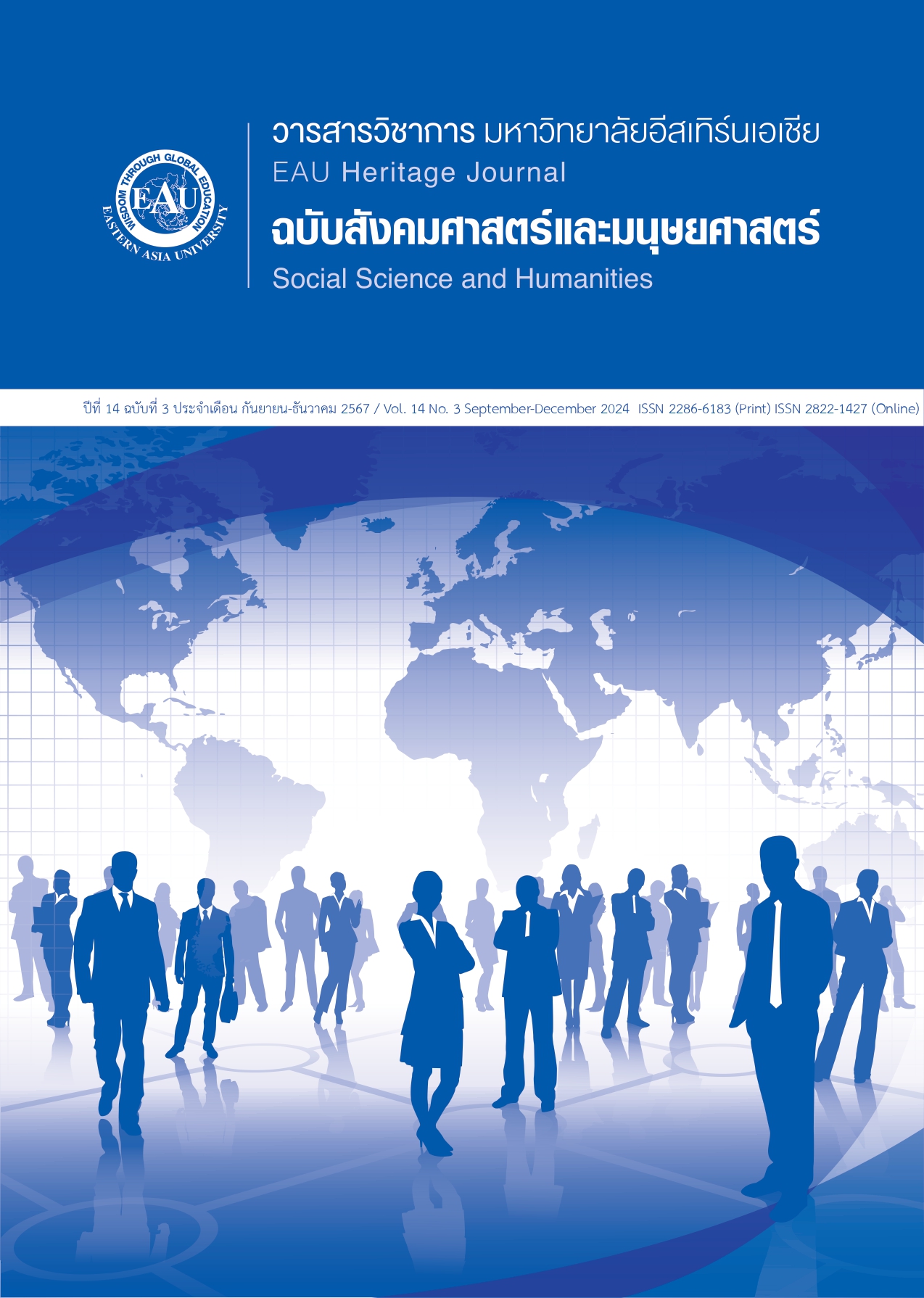The Direction of the Japanese Interpreter Career in Thailand in the Era of Artificial Intelligence
Keywords:
Artificial Intelligence (AI), Japanese Interpreter, LimitationsAbstract
Nowadays, it’s the era of Artificial Intelligence (AI) in Thailand. The public and private sectors have set ambitious goals for developing AI in Thailand by aiming to integrate AI technology into all aspects of society. However, artificial intelligence technology has a direct impact on careers that use language skills. That is the profession of “interpreter” because the software used in language translation by AI has been developed to be accurate and natural. Thailand is a country where foreign companies continuously invest. Especially Japan, which will be number one in investing in doing business in Thailand in 2024. The Japanese interpreter profession plays an important role in helping support the company in its communication or coordination duties. Due to the Japanese avoiding direct English communication with foreginer. However, the Ministry of Digital Economy and Society and the Ministry of Higher Education, Science, Research, and Innovation have jointly developed the National AI Action Plan for Thailand's Development. This plan aims to establish a robust infrastructure that promotes the development and application of AI technology in Thailand. The plan outlines five key strategies, with the fifth strategy focusing on promoting the adoption of AI technology and systems in the public sector and target industries which include 1. High-potential industries include the Modern automotive industry, the smart electronics industry, the high-income tourism and quality tourism industry, the agriculture and biotechnology industry, and the food processing industry 2. Future industries include Industrial robots, the aviation and logistics industry, the Biofuel and biochemical industry, the digital industry, and the comprehensive medical industry. Among these industries, Japan remains a major investor and employer, Requiring a significant number of personnel with Japanese language expertise.
References
AI Thailand. (2024). National AI action plan for Thailand's development (2022-2027). Retrieved
from https://opendata.dbd.go.th/ dataset/dataset_21_01
Civilian Security Organization National Intelligence Agency. (n.d.). Advantages and disadvantages of
artificial intelligence. Retrieved from https://www.secnia.go.th/2023/11/ข้อดี
ข้อเสียของปัญญา/
Department of Business Affairs. (2023). Total number of permissions granted to aliens to conduct
business (cumulative). Retrieved from https://opendata.dbd.go.th/ dataset/dataset_21_01
Kasikorn Research Center. (n.d.). How can AI and AI Thailand help the government sector.
Retrieved from https://www.kasikornresearch.com/th/analysis/k-social-media/Pages/AI-
CIS3499-FB-27-05-2024.aspx
Ministry of Higher Education, Science, Research and Innovation, Ministry of Digital Economy and
Society. (2024). AI action plan for Thailand's development. 13, n.p.
Nagano prefecture. (n.d.). Omotenashi and wisdom. n.p.
Office of the Eastern Economic Corridor Policy Committee. (2023). Summary of Japanese
investment in the eastern economic corridor (EEC), n.p.
Sportlight. (2024). Marketing business. Retrieved from https://www.amarintv.com/
spotlight/technology/detail/60307
The Japan External Trade Organizatio. (2021). Survey results on investment trends of Japanese
joint ventures in Thailand in 2020, 35, n.p.
Tryeting. (2022). Are there limits to AI? 4 examples and solutions explained. Retrieved
from https://www.tryeting.jp/column/ 5328/
Tryeting. (2022). Are there limits to AI? 4 examples and solutions explained. Retrieved from
https://www.pref.nagano.lg.jp/kankoshin/omotenashi/sengen.html
Yoshida, D. (2023). Development of Japanese service model OMOTENASHI for entrepreneurs
Thai restaurant business in Bangkok area to support Japanese tourists. Journal of business administration and language, 11(1), 105.
Yuenyong, W. (2019). The roles of interpreters and problems of Thai Japanese interpreters in
industrial plants in Thailand: A case study of the differences between novice and
professional interpreters. National graduate academic conference: All sciences and arts,
-449.





